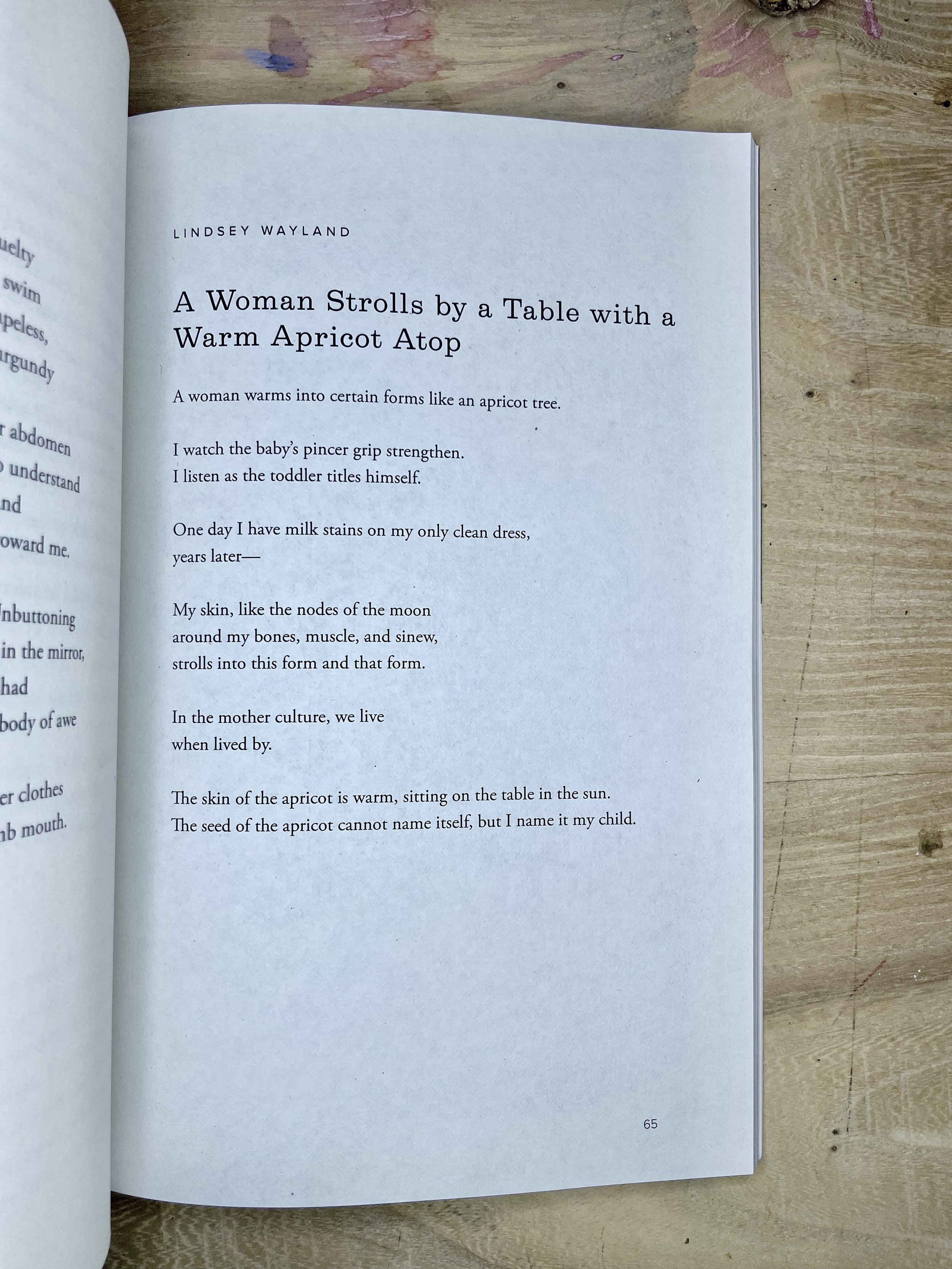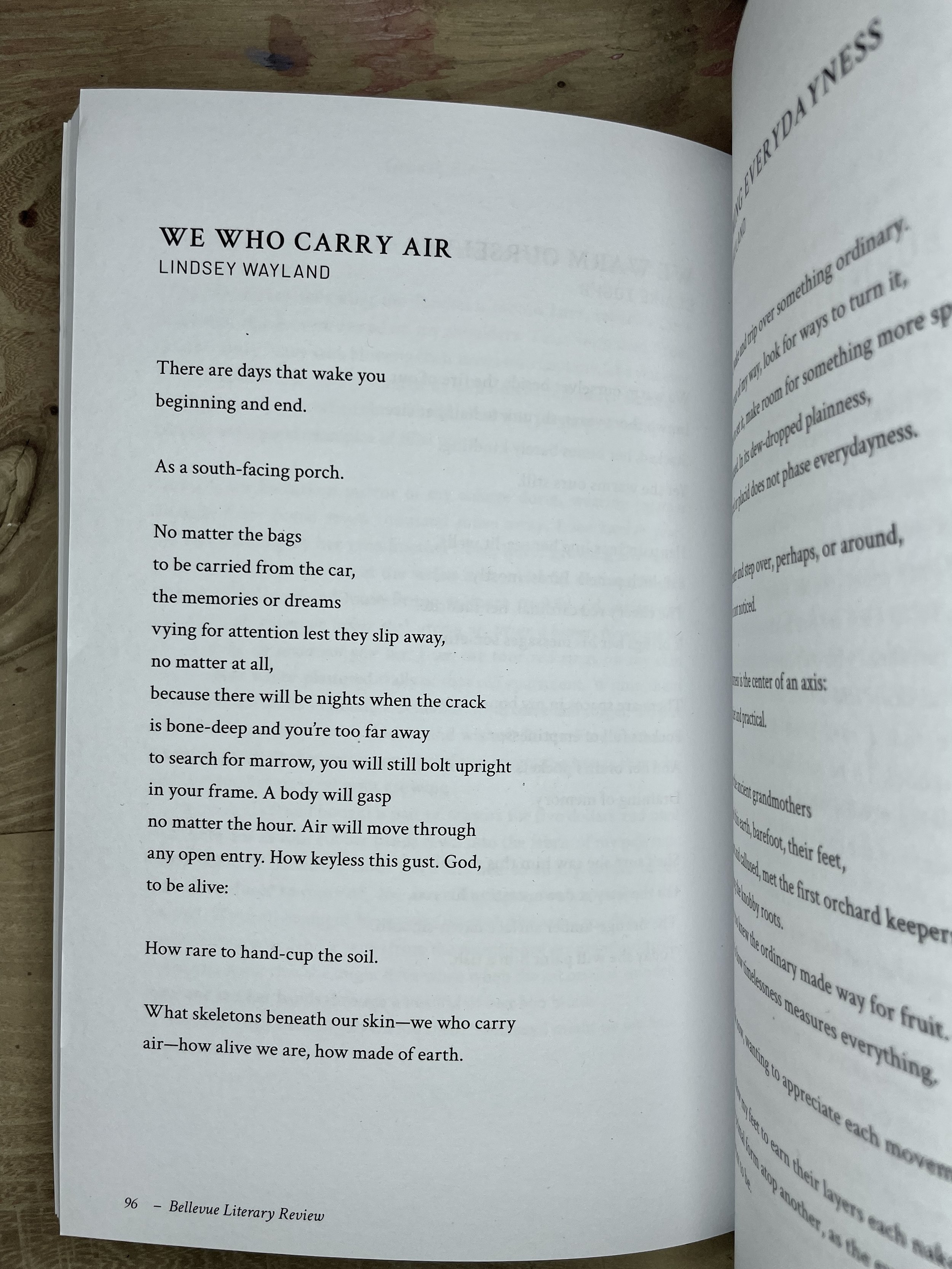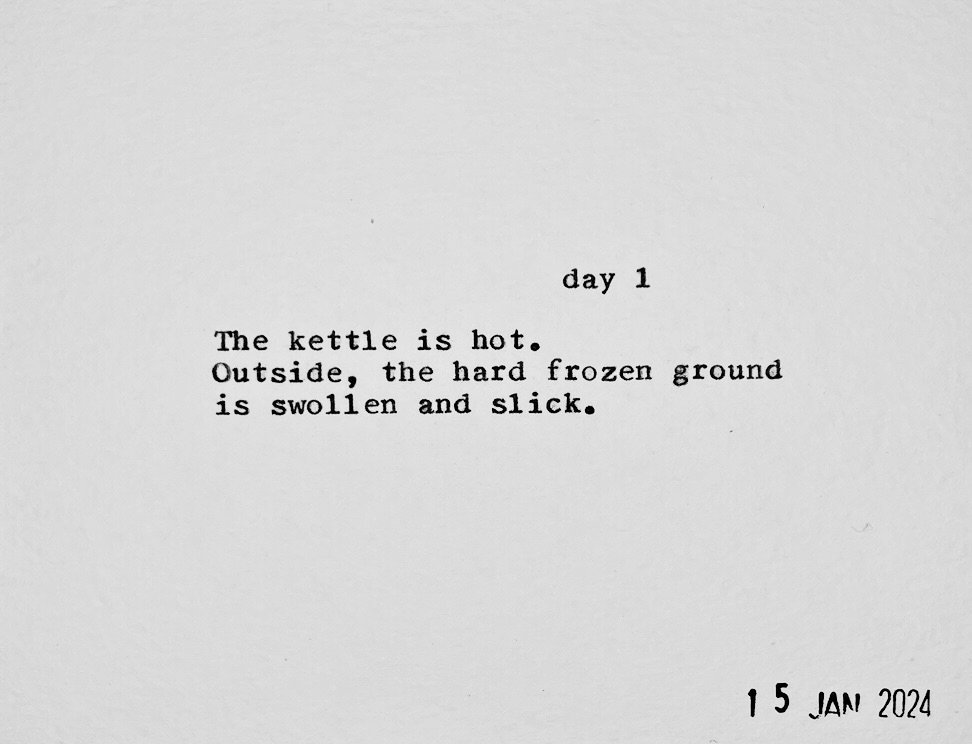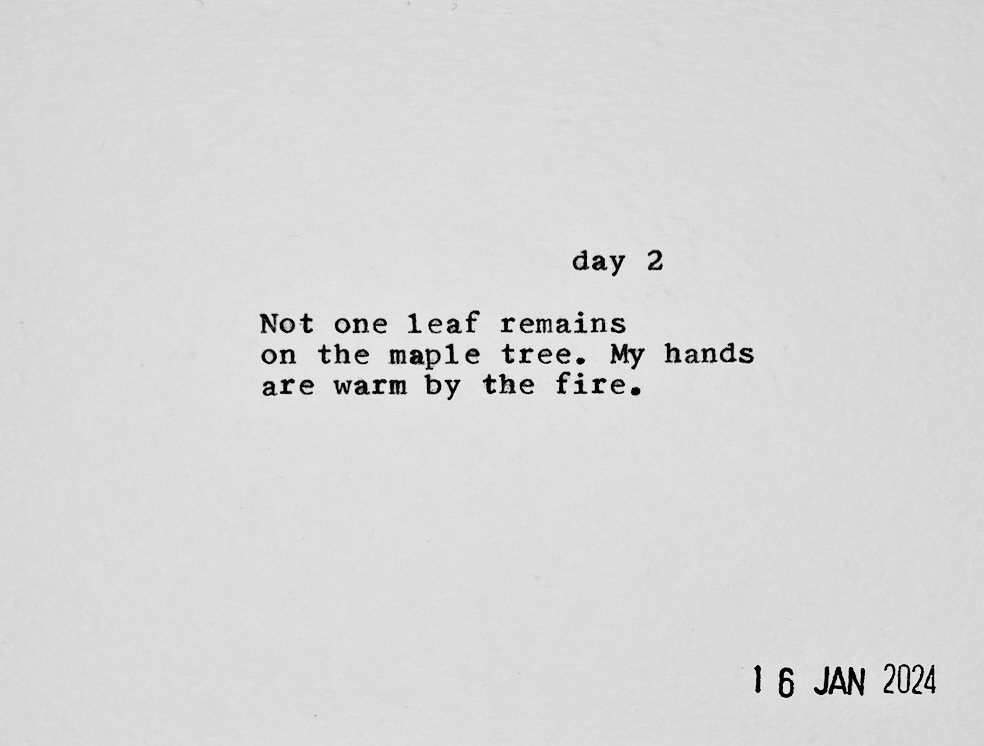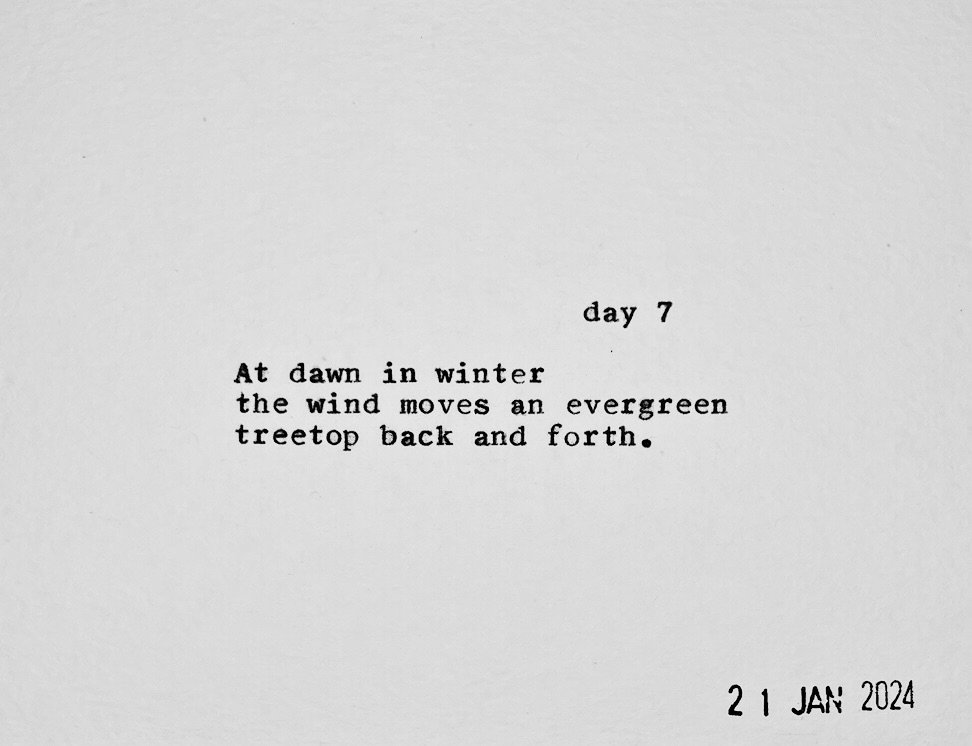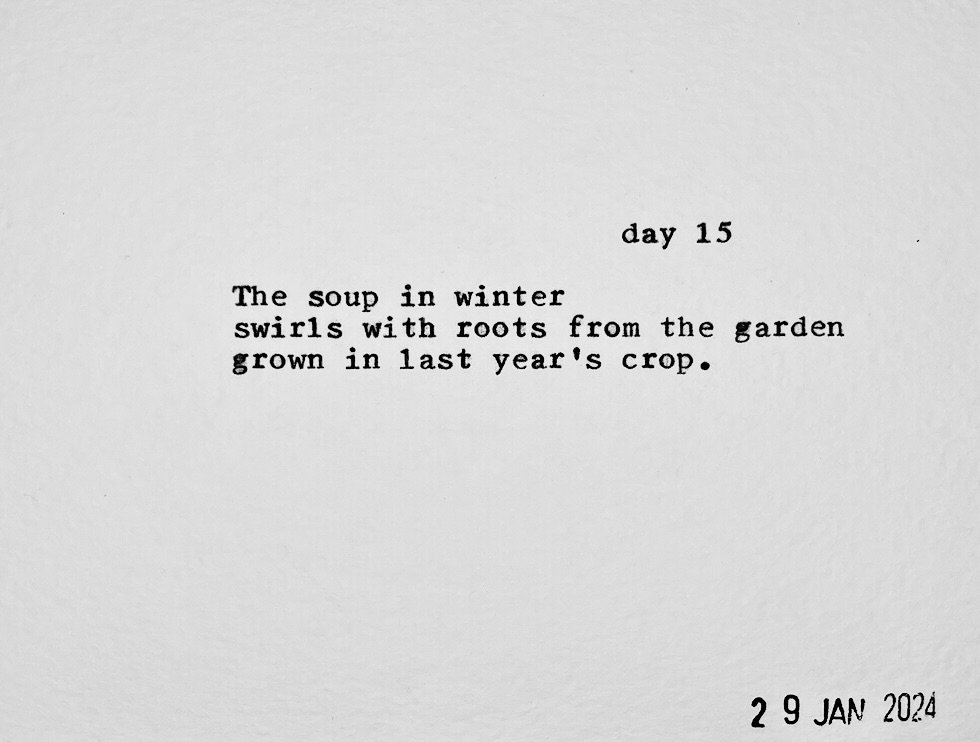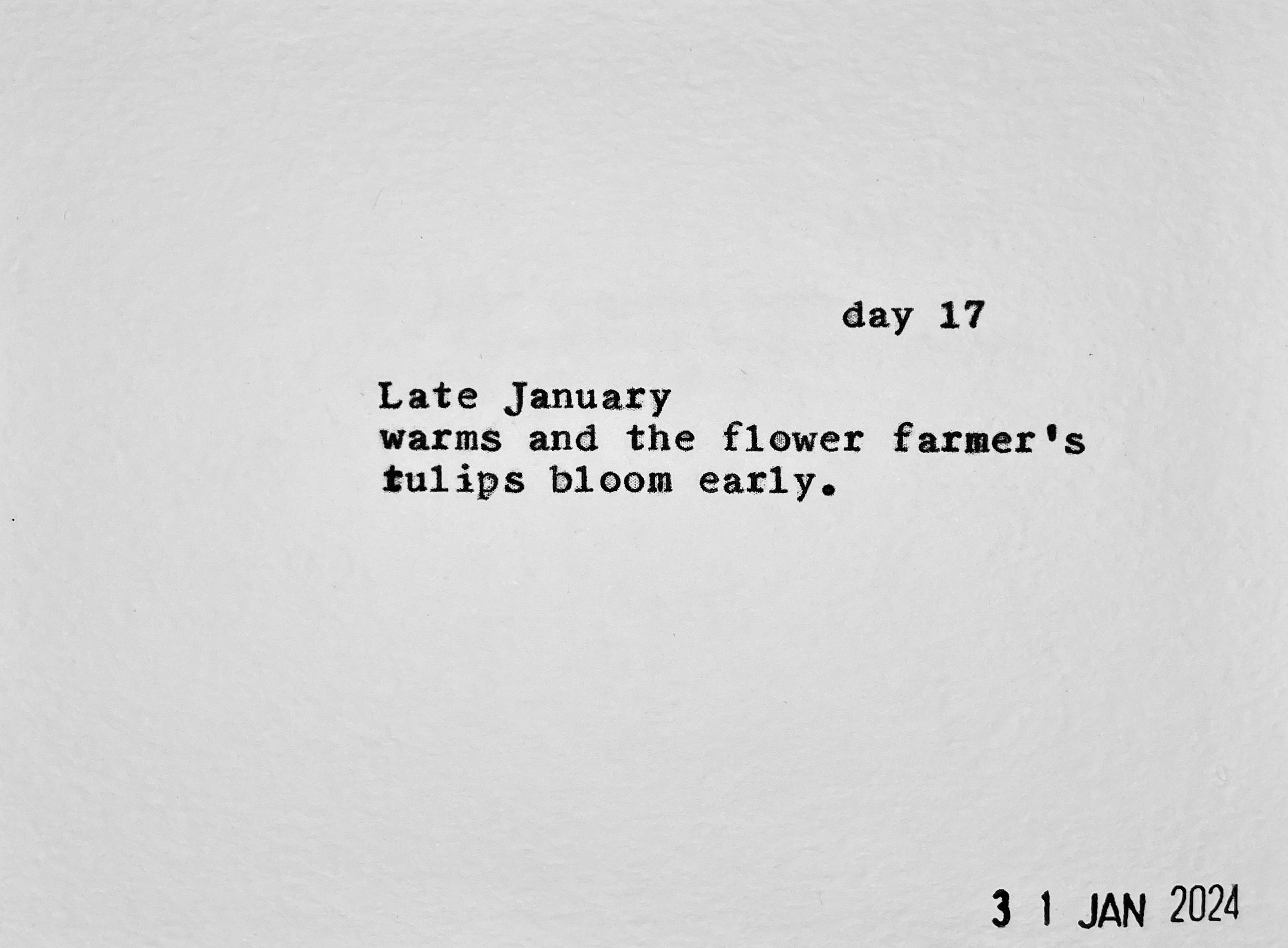POEMS
We Who Carry Air
There are days that wake you
beginning and end.
As a south-facing porch.
No matter the bags to be carried
from the car,
the memories or dreams
vying for attention before they slip away,
no matter at all,
because there will be nights when the crack
is bone-deep and you’re too far away
to search for marrow, you will still bolt upright
in your frame. A body will gasp
no matter the hour. Air will move through
any open entry. How keyless this gust. God,
to be alive:
How rare to hand-cup the soil.
What skeletons beneath our skin—we who carry
air—how alive we are, how made of earth.
—Bellevue Literary Review, issue. 45 — Taking Care, print
Origin of a Mountain
My grandmother used to tell me a story
that her great-grandmother told:
The origin of a mountain is a stone’s prayer
to the wind: please erode everything but me.
Time lifts the mountain.
And when rocks rumble down the leeward side,
it is the wind who begs
to be seen.
—swamp pink, issue. 18 — March 2025
A Book to a Scholar
I wake with my spine bent,
marred with wear, though loved
and eared, and to this I say:
open me, open me again,
as a woman might,
after decades with her lover
on the first unfogged day
of spring, pull the cover back.
—swamp pink, issue. 18 — March 2025
A Woman Strolls by a Table with a Warm Apricot Atop
A woman warms into certain forms like an apricot tree.
I watch the baby’s pincer grip strengthen.
I listen to the toddler title himself.
One day I have milk stains on my only clean dress,
years later—
my skin, like the nodes of the moon
around my bones, muscle, and sinew,
strolls into this form and that form.
In the mother culture, we live
when lived by.
The skin of the apricot is warm, sitting on the table in the sun.
The seed of the apricot cannot name itself, but I name it my child.
—Southern Humanities Review, issue vol. 56 no. 4, print
Ode to Slow
Slow bakes brown bread,
and ferments cabbage,
sprouts the tender leafy greens,
preserves in summer
the juicy red berries
and stone fruit from the orchard,
slow is the orchard itself.
When the right shoulder breaks
from a fall, slow slowly masters
left-handed calligraphy.
Not the one who cuts the tree, not the one
who cuts the wood,
but the cured apple trunk, with its seasoned
slow traverse from green to dry to burn.
A child getting dressed for school,
unable to find the left shoe, only to discover
it’s been on the right foot all this time,
old ladies shuffling on sidewalks in town,
locked arms and laughing.
The softening cervix dilating,
the way the baby’s body travels down
then slides back up and down again
and again to her birth.
The decay of leaves above soil, the rot,
the slow-growing cedar trees, the bur
oak, a cactus in the desert.
Enough, enough —
like the ladder rungs to the loft,
even when the hurried climb,
there are ten, there need be no more.
—Third Wednesday, print, Winter 2024
Day Thirty-Six
The calligrapher
dips her nib in sumi ink.
Spring rain taps the roof.
—Frogpond, Journal of the Haiku Society of America, 47:2, Spring/Summer 2024
Affirming Everydayness
Everydayness is the center of an axis:
both quiet and practical.
When the ancient grandmothers
walked this earth, barefoot, their feet,
elegant, callused, met the first orchard keepers
tending the knobby roots, the blossoming elbows.
They knew the ordinary made way for fruit,
the way timelessness measures everything,
one primal form atop another.
I walk now, wanting to appreciate each movement,
to allow my feet to earn their layers
every naked step.
—Bellevue Literary Review, issue. 45 — Taking Care, print
FORTHCOMING
“Every Day,” Amsterdam Review, forthcoming, Spring 2025
“Origin Story,” Amsterdam Review, forthcoming, Spring 2025
“Day Ninety” The Citron Review, forthcoming, 2025
“My Simplicity” The Citron Review, forthcoming, 2025
“A Book to a Scholar” swamp pink, forthcoming, print, issue 18, March 2025
“Origin of a Mountain,” swamp pink, forthcoming, print, issue 18, March 2025
“Ode to Slow,” print, Third Wednesday, winter 2024
“Day Thirty-Six” print, Frogpond, the Journal of the Haiku Society of America, issue 47:2
“We Who Carry Air,” print, Bellevue Literary Review, issue. 45 — Taking Care
“Affirming Everydayness,” print, Bellevue Literary Review, issue. 45 — Taking Care
“A Woman Strolls by a Table with a Warm Apricot Atop,” print, Southern Humanities Review, issue 56.4
PUBLISHED


